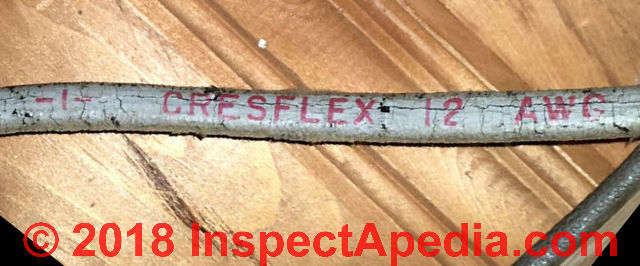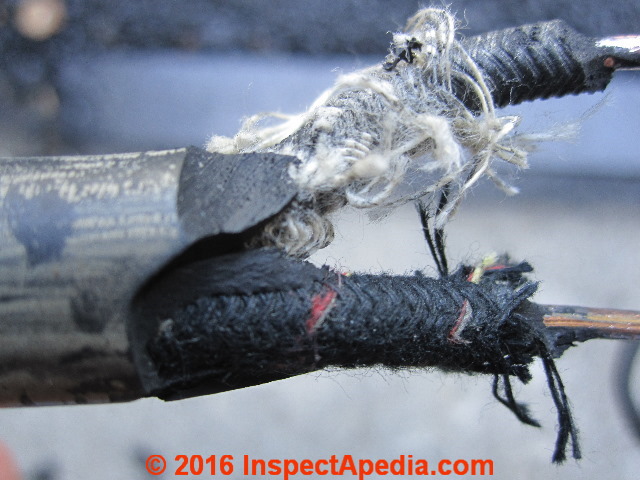The electrical systems in older buildings are often not anywhere near as safe as that on contemporary homes and it can rarely handle the electrical load that modern equipment places on it.
Old fabric insulated electrical wire.
Nonmetallic sheathed cable was born which incorporated a rubberized fabric coating sheath much like knob and tube wiring but here the hot and neutral wire were run together in this one sheathing.
Copper aluminum copper clad aluminum tinned copper.
Fully customizable pendants and cord sets new and vintage lighting.
Until the early 1960 s most home power systems did not include a grounding wire.
Cloth wire also comes in two types.
Basic old house wiring systems are often ungrounded.
You ll find it in anywhere from 12 to 22 gauge and will often have paper or rubberized insulation.
In the early days of home wiring from the late 1880s through about.
Highest quality us made cloth covered wire in many styles colors patterns and gauges.
The ceramic insulators keep the wires from touching each other and from.
Very little electric current will flow through it under the influence of an electric field this contrasts with other materials semiconductors and conductors which conduct electric current more easily.
In the electrical wire history old wire identification article below we illustrate a variety of types of electrical wiring found in older buildings based on the wire insulation material asbestos cloth plastic metal and the wire material itself.
The inclusion of the ground wire lets you use three prong receptacles.
An electrical insulator is a material in which the electron does not flow freely or the atom of the insulator have tightly bound electrons whose internal electric charges do not flow freely.
Modern electrical wiring is encased in plastic which carries three wires inside.
It also had its drawbacks due to the lack of a ground wire but its development would eventually lead to major innovation.
Lots of how to and information pages.
A rich array of lamp parts.
These wires are found in many older buildings.
These photographs of a variety of fabric covered rubber plastic insulated conductor electrical wire including copper and tinned copper from the 1950 s were provided to us by a reader who planned to salvage this old copper wiring to sell for scrap.
One issue in particular often worries homeowners with aging electrical system.
Identifying old wiring.
Electrical wiring insulation in older homes.
Some companies still manufacture this wire and use pvc as well for added integrity.
This lack of grounding in old wiring systems was changed in 1962 when amendments to the electric code mandated equipment grounding for all electrical systems.










